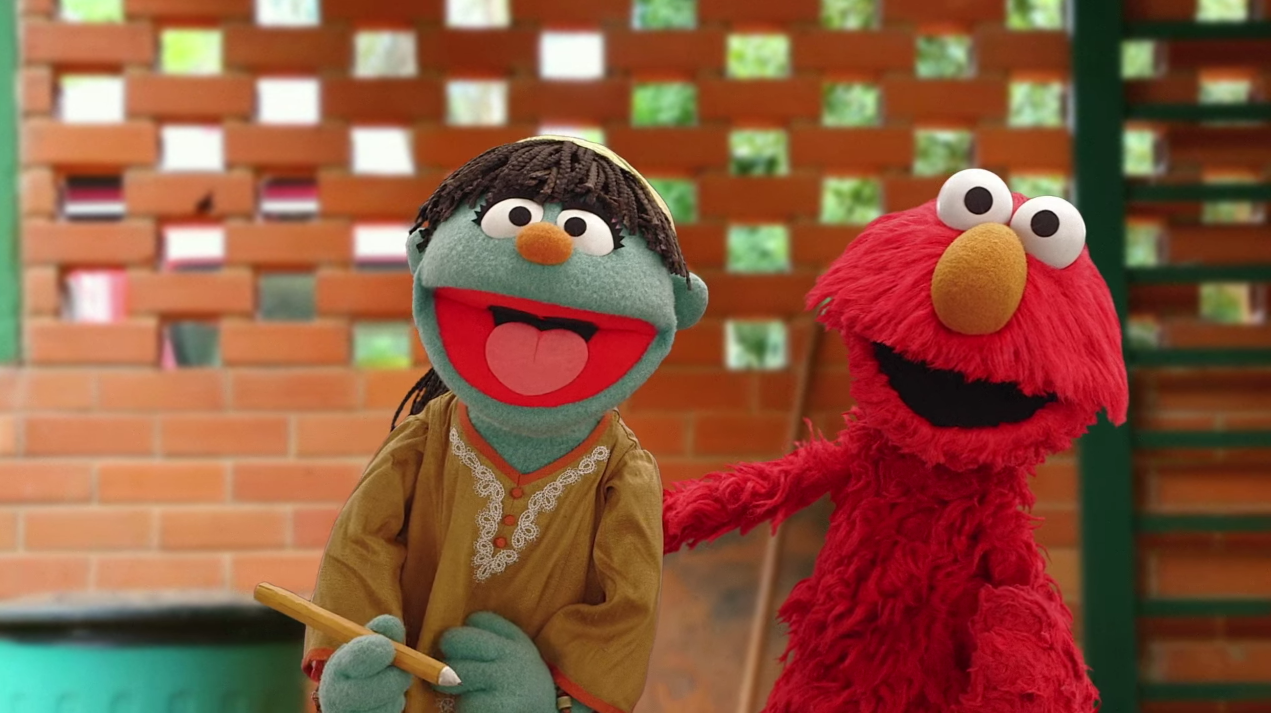Sesame Street's Elmo and Raya Warn Kids About Zika

Two chipper Sesame Street Muppets are lending their cheerful voices to a serious topic in a pair of public-service announcements intended to raise awareness of the Zika virus among children and families.
The two 30-second videos were created by the Pan American Health Organization (PAHO) in collaboration with Sesame Workshop, the nonprofit organization behind the children's television show Sesame Street. The recordings are meant to engage young viewers in South and Central America and the Caribbean, where the Zika virus is spreading.
In the videos, popular characters Elmo and Raya share tips and suggestions that even young children can follow, instructing them on how to prevent Zika from spreading and how to avoid mosquito bites. [Zika Virus News: Complete Coverage of the Outbreak]
One of the videos focuses on stopping Zika's spread by making it harder for mosquitos to breed. This should be done by removing and securing containers around the home that could collect standing water and thus provide a place for mosquitos to lay their eggs, the video says.
The second video explains to kids what they can do to keep themselves safe from bites — for example, by covering windows with screens, wearing protective clothing and using insect repellent.
Currently available on YouTube in Spanish, the videos will also be available in English and in Portuguese for Brazilian audiences, PAHO announced in a statement on Wednesday (March 23).
Zika virus is currently spreading in 39 countries in the Americas, according to the Centers for Disease Control and Prevention. The virus is usually transmitted to people by the Aedes aegypti mosquito, and until recently was thought to cause mild symptoms, such as fever and rashes, which only appeared in about 20 percent of the people it infected.
Get the world’s most fascinating discoveries delivered straight to your inbox.
But recent studies have linked Zika to neurological damage, with evidence suggesting that infections in pregnant women can lead to microcephaly — undersized brains — in newborns. Other studies have linked Zika to Guillain-Barré syndrome, a condition that can cause muscle weakness and paralysis in people of any age.
The familiar faces of Sesame Street characters have appeared in a number of public service initiatives over the years, helping children to understand and take action on important issues related to health and wellness, emotional well-being, literacy, and respect for others.
Elmo, a character that is especially popular with Sesame Street's youngest fans, features in many of these programs, helping kids come to terms with topics including healthy eating, living with asthma, emergency preparedness and dealing with grief.
Lewis Kofsky, vice president of International Creative & Global Interactive Strategy for Sesame Workshop, said in a statement, "Just as we bring lessons about ABCs and 123s to keep children's minds healthy, we also create messages that keep their bodies and emotional well-being healthy. We're proud to work with PAHO to offer this new content [and] help raise awareness about Zika."
Follow Mindy Weisberger on Twitter and Google+. Follow us @livescience, Facebook & Google+. Original article on Live Science

Mindy Weisberger is a science journalist and author of "Rise of the Zombie Bugs: The Surprising Science of Parasitic Mind-Control" (Hopkins Press). She formerly edited for Scholastic and was a channel editor and senior writer for Live Science. She has reported on general science, covering climate change, paleontology, biology and space. Mindy studied film at Columbia University; prior to LS, she produced, wrote and directed media for the American Museum of Natural History in NYC. Her videos about dinosaurs, astrophysics, biodiversity and evolution appear in museums and science centers worldwide, earning awards such as the CINE Golden Eagle and the Communicator Award of Excellence. Her writing has also appeared in Scientific American, The Washington Post, How It Works Magazine and CNN.
 Live Science Plus
Live Science Plus







